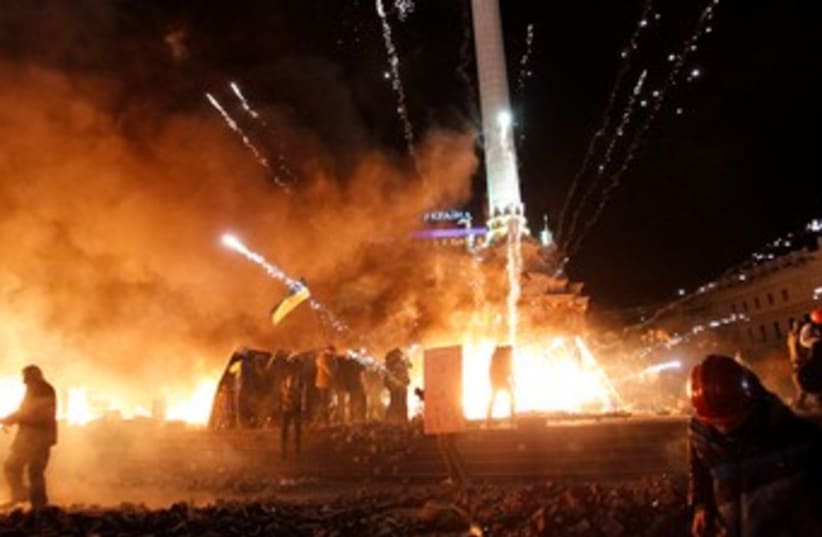At least 18 people, including seven policemen, died on Tuesday during hours of violence between security forces and civilians. Many were killed by gunshot and hundreds more injured, with dozens of them in a serious condition, police and opposition representatives said.Alarmed Western governments demanded restraint and dialogue. US Vice President Joe Biden called Yanukovich, urging him to pull back the government forces and to exercise maximum restraint, the White House said.Earlier, the state security service set a deadline for the demonstrators to end disorder or face "tough measures". Then the police advanced up to the square before launching a full assault in the early hours, throwing stun grenades.Nationwide demonstrations erupted in November after Yanukovich bowed to Russian pressure and pulled out of a planned far-reaching trade agreement with the European Union, deciding instead to accept a Kremlin bailout for the heavily indebted economy.Western powers warned Yanukovich against trying to smash the pro-European demonstrations, urging him to turn back to Europe and the prospect of an IMF-supported economic recovery, while Russia accused them of meddling.Ukraine has been rocked periodically by political turmoil since gaining independence from the Soviet Union more than 22 years ago, but it has never experienced violence on this scale.As the security forces moved forward, opposition leader Vitaly Klitschko reacted defiantly, telling supporters on the square: "We will not leave here. This is an island of freedom. We will defend it."The world champion boxer-turned politician later arrived at Yanukovich's office for talks, Klitschko's spokeswoman said, but he and another opposition leader, former economy minister Arseny Yatsenyuk, were still waiting to see the president an hour later.Earlier on Tuesday the State Security Service (SBU), in a joint statement with the interior ministry, signalled the government's intentions. "If by 6 p.m. the disturbances have not ended, we will be obliged to restore order by all means envisaged by law," they said.The riot police moved in hours after Moscow gave Ukraine $2 billion in aid for its crippled economy which it had been holding back to demand decisive action to crush the protests.
Ukraine riot police move in on Kiev protesters after 18 die
Eleven civilians, seven policemen died in what was Ukraine's bloodiest day since it gained independence in 1991.
